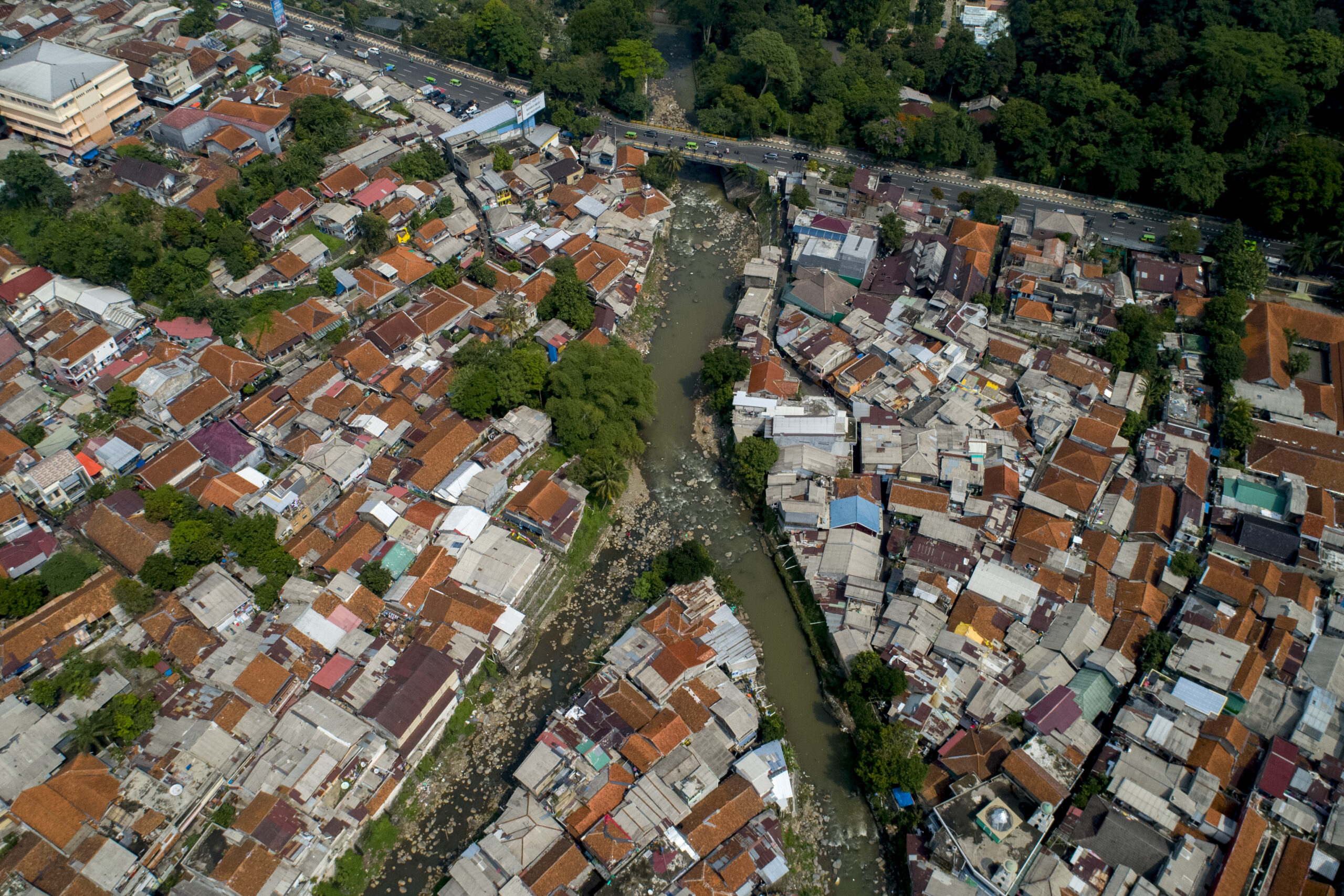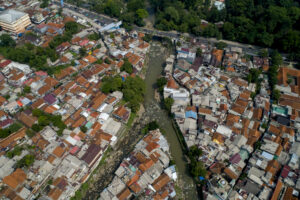BOGOR
Bogor is the first city in Indonesia to implement the Plastic Smart Cities program.

 | CITY: Bogor |
Geographically, Bogor City is in the middle of the Bogor Regency area. The area of Bogor City is 118.5 km2 consisting of 6 sub-districts and 68 urban villages. Bogor City is one of the supporting cities for the capital, with the distance between Bogor City and DKI Jakarta is approximately 60 km, while the distance between Bogor City and Bandung City is about 120 km. Known as the City of Rain, Bogor City has an average monthly rainfall of around 267.9 - 385.3 mm. The slope of Bogor City is quite high and the type of soil in the Bogor City area is reddish brown lotosil with a fine soil texture and is somewhat sensitive to erosion.
At the end of 2021, the population of the city of Bogor is 1,091,396 people, with a density of 9,210 people/km2. During the pandemic, Bogor City is concerned with public health and environmental hygiene. Bogor is the first city in Indonesia to implement the Plastic Smart Cities program and ready to become a pilot city to reduce and manage plastic waste.
In general, the Bogor city government has two main concerns for the PSC:
- Strengthen TPS 3R (The Community-Based Material Recovery Facility)
- Preparation of Regulations related to the reduction of plastic waste in the traditional market in Bogor City.
In the period 2021 – 2024, The City of Bogor is committed to building an innovative plastic waste management pilot project to reduce the amount of plastic waste dumped into the environment by at least 30% (thirty percent) at the pilot site as much as 5,725 metric tons and replicated at the city level to reduce the amount of plastic waste dumped into the environment by up to 20% (thirty percent) in 2025.
In 2018, the Bogor city government implemented a ban on the use of single-use plastic bags from 24 retailers. This initiative is recognized as being able to reduce the amount of plastic waste by up to half a ton per day.
Various waste management initiatives that have been carried out have made the City of Bogor succeed in reducing 16% of the 600 tons of total volume of waste disposed of at the Galuga TPA in 2020.
The Bogor City Government uses two approaches in dealing with the city's waste problem. Inorganic waste such as plastic is processed by waste banks. Meanwhile, organic waste is processed into maggots and fertilizer.
Until now, there are 27 3R TPS and 346 Waste Bank units that contribute to municipal waste management. In addition, the Bogor Without Plastic Bags (BOTAP) program, which previously targeted retail, is now starting to expand to traditional markets.
Kenanga Waste Bank Unit (BSU Kenanga)
In 2021, WWF Plastic Smart Cities through Bogor City's Environmental Agency supported BSU Kenanga to become a pilot project in managing organic and inorganic waste. So nowadays, BSU Kenanga not only serves households in the area but has also begun to reach out to business actors around the location of the Waste Bank, such as cafes, restaurants, etc. Thanks to the support of Plastic Smart Cities, BSU Kenanga also replicated similar waste banks for RT and RW at other locations. In 2022, BSU Kenanga also received a 3-month training from PPM School of Management to create a business model for waste management through the implementation of a circular economy. And last year, BSU Kenanga also won the Bogorku Bersih contest held by Radar Bogor, a local media in collaboration with the Bogor City Government.
TPS3R Mutiara Bogor Raya (MBR)
Through the support of WWF Plastic Smart Cities, TPS3R MBR successfully addressed Multi-Layer Packaging waste with around 30% converted into building material mix (roster). In the activity of making the roster, TPS3R MBR receive training and assistance from Rebricks Indonesia (a start-up offering technological innovations to address the plastic waste problem) which collaborated with PT Nutrifood Indonesia. In 2022, TPS3R Mutiara Bogor Raya also joined 3 months of training from PPM School of Management to be able to create an educational business model for waste management and at the end of the training, they successfully won the business model-making competition.
Yayasan Bumi Selaras Sejahtera (YBSS)
The Bumi Selaras Sejahtera Foundation has an activity called the POS PANDAI (Waste Sorting, Saving, Recycling, and Innovation Center) which focuses on active community participation in its area. WWF Plastic Smart Cities supports the provision of facilities and pre-facilities to reduce waste from its source, and it is hoped that the POS PANDAI will also lead to a change in people's behavior by encouraging them to sort their waste from home.
Playlist
Explore other Plastic Smart Cities


Geocoding Error Occured.
Tried to Geocode:
Error Type:
Please be sure to follow the tutorial on how to setup the Google APIs required for the Advanced Google Map Widget.
Google Map API Key Tutorial






















